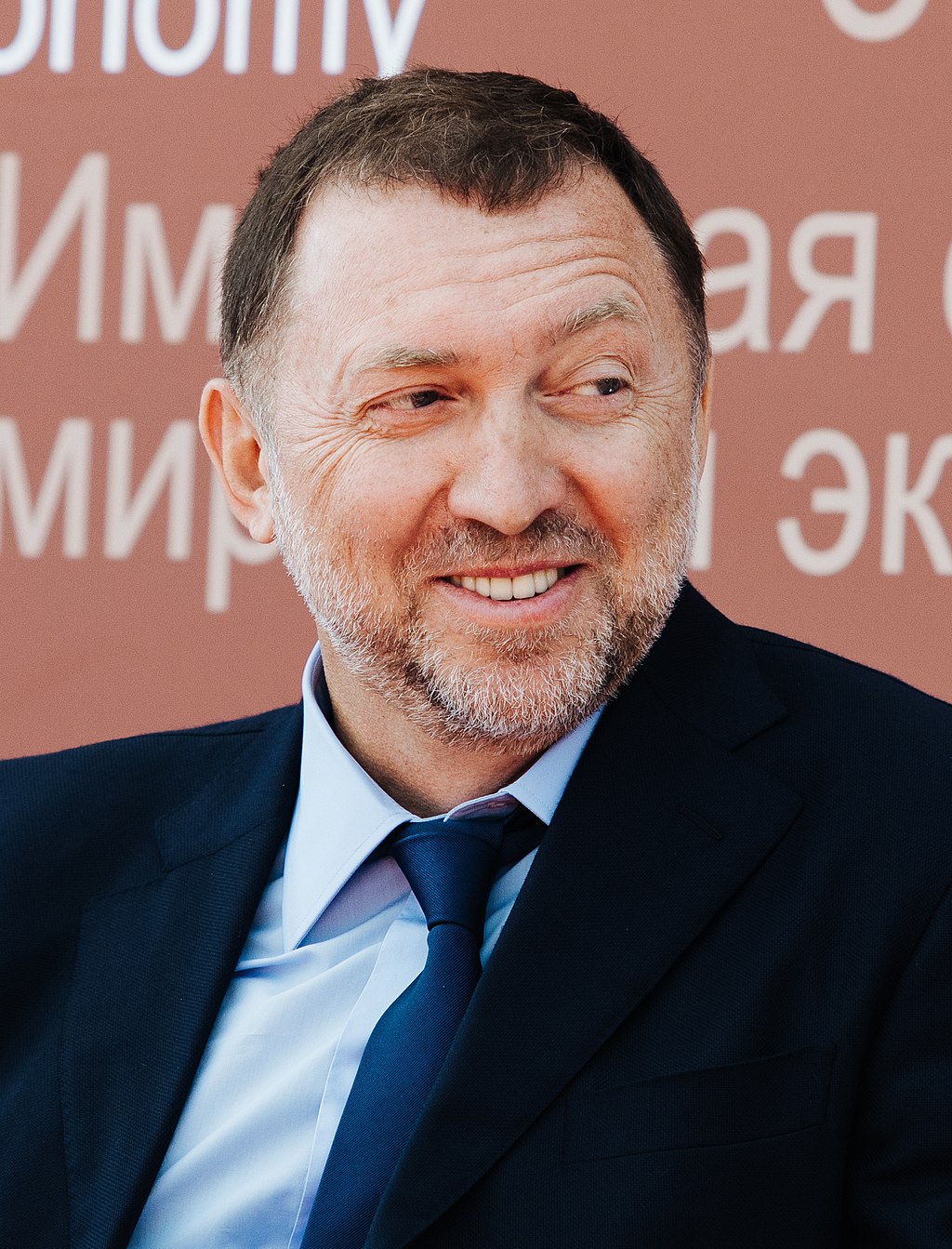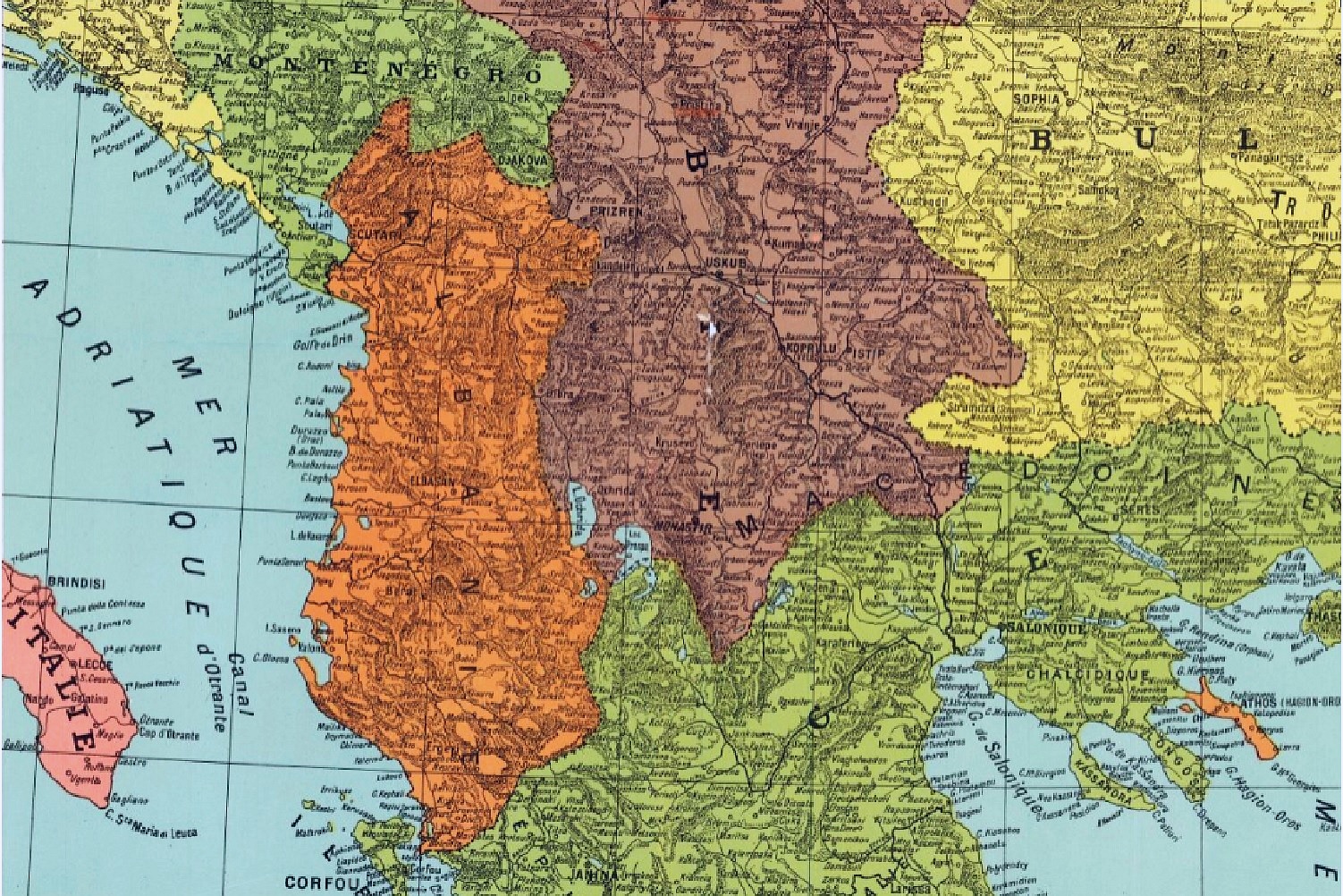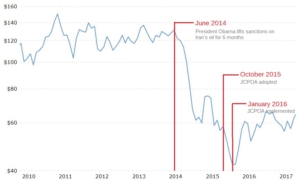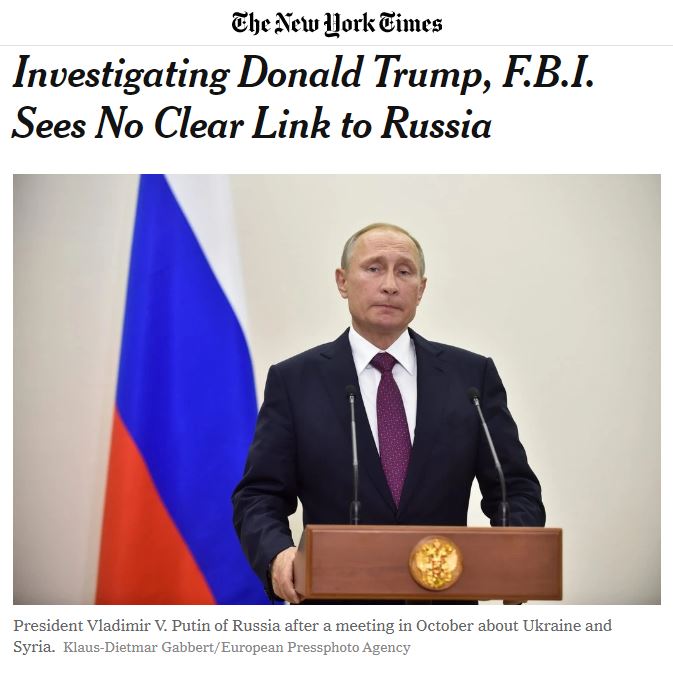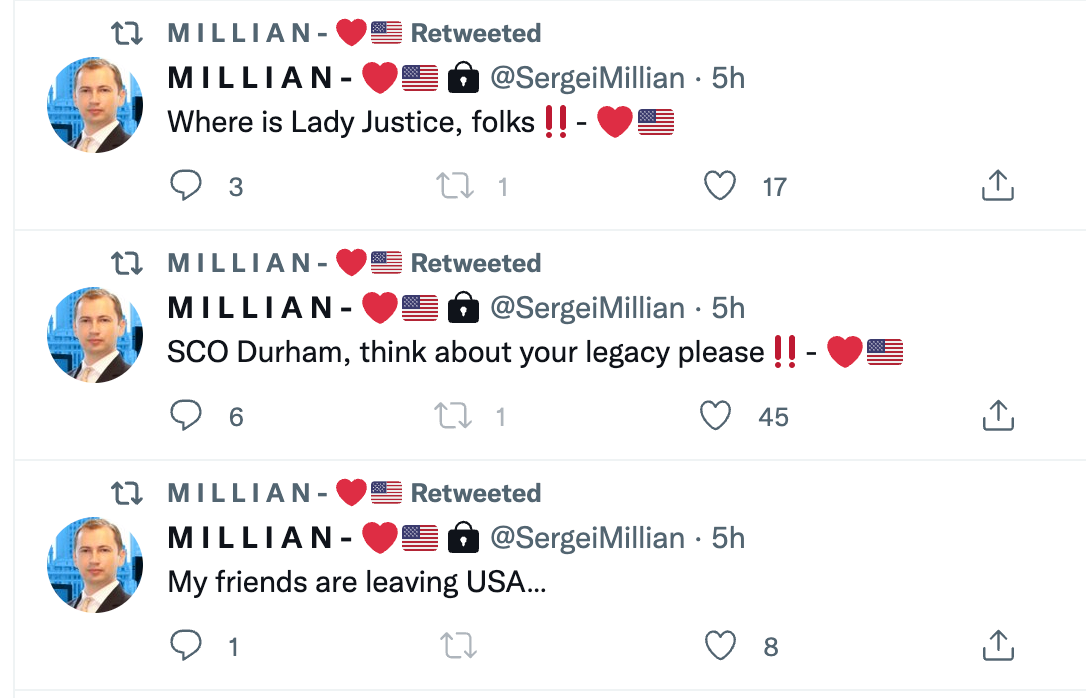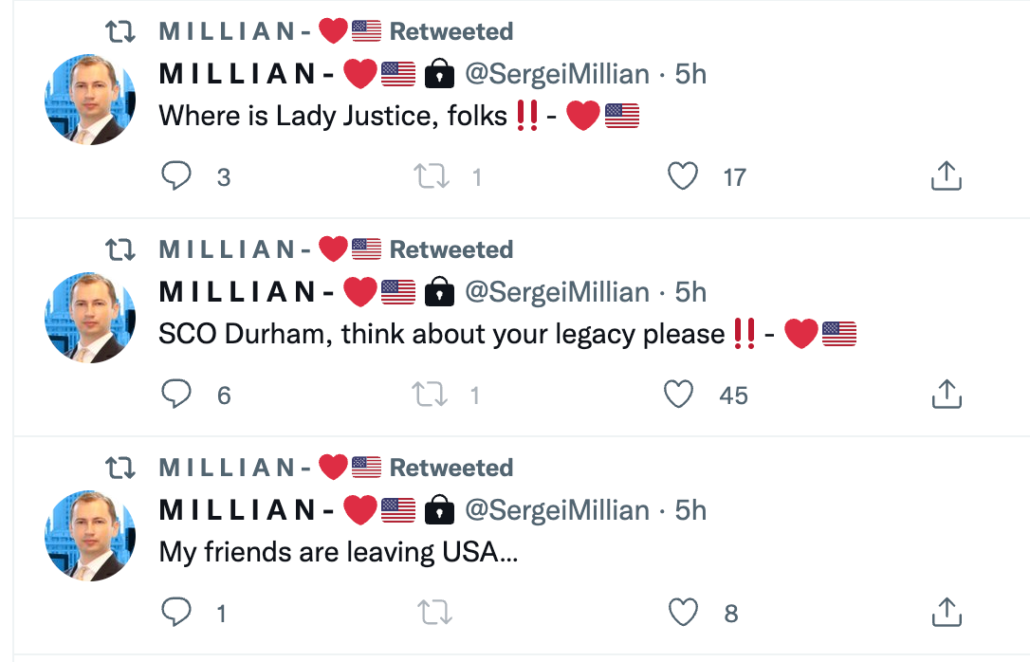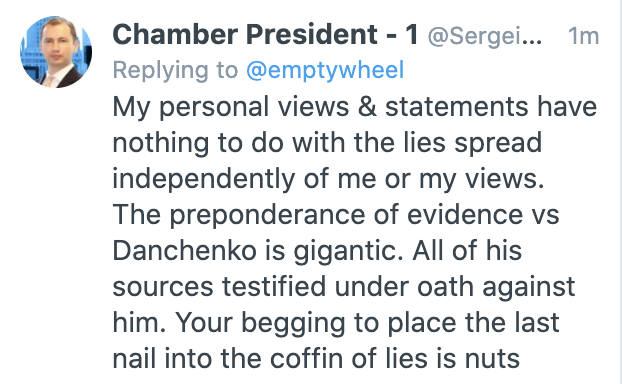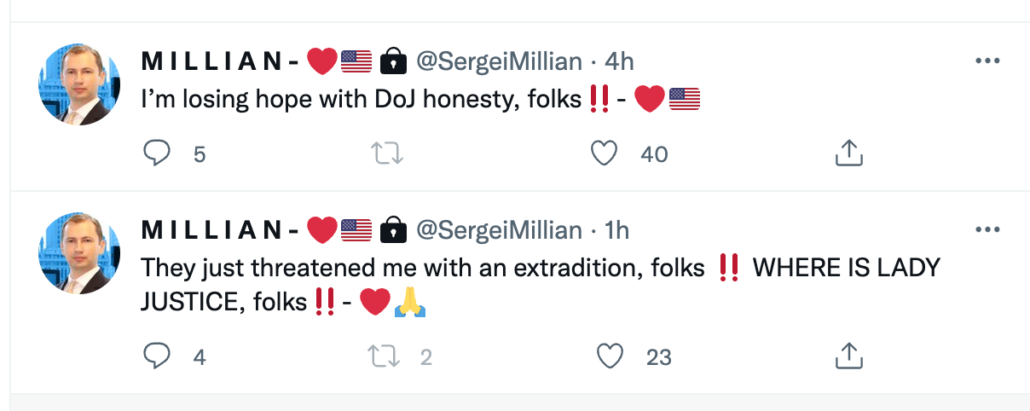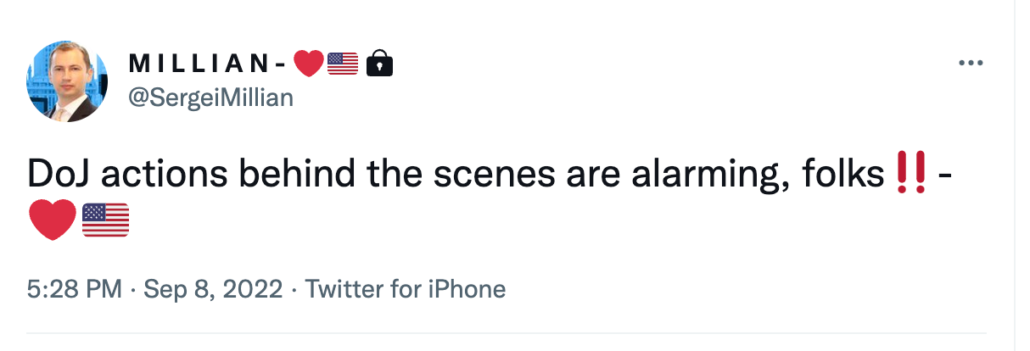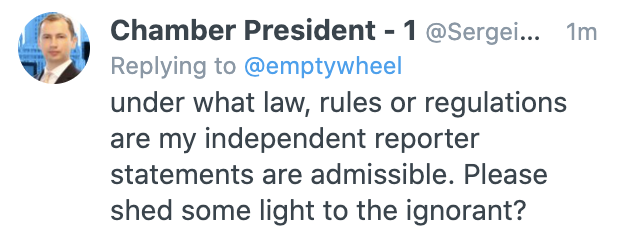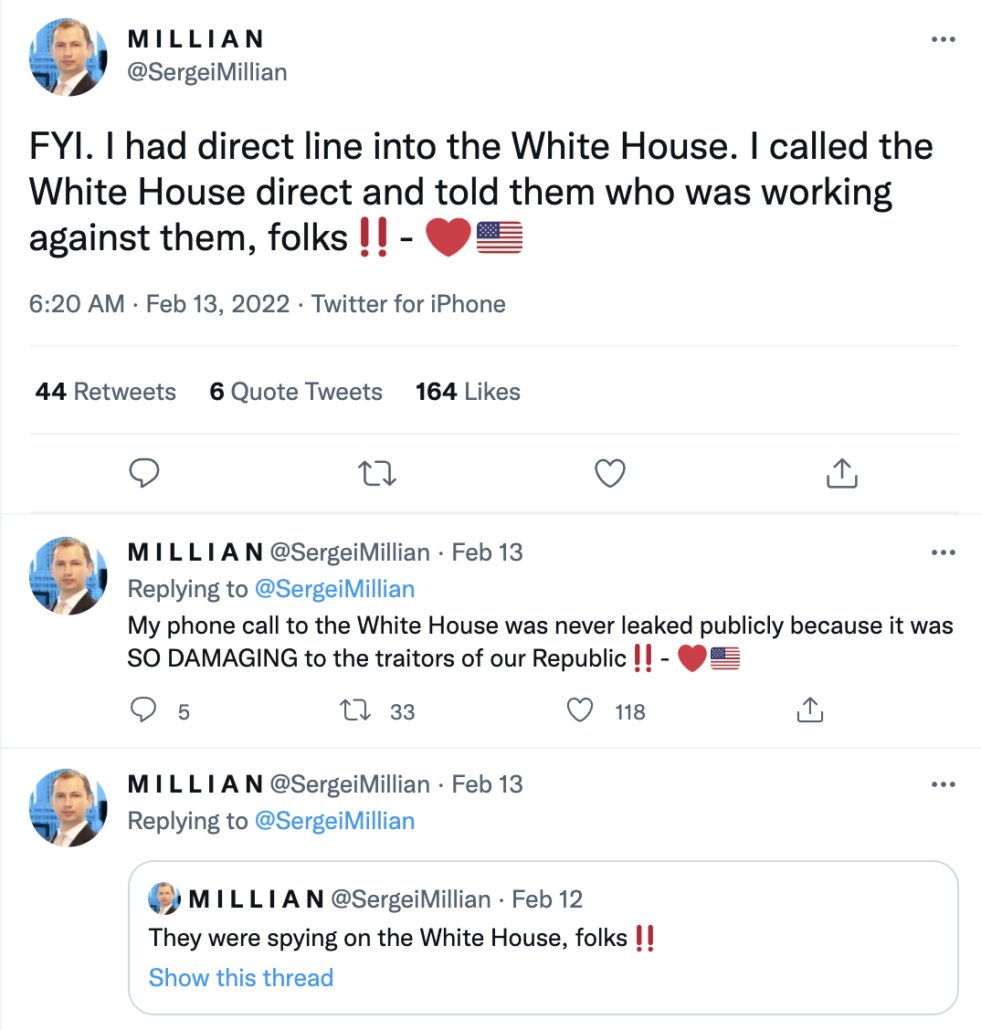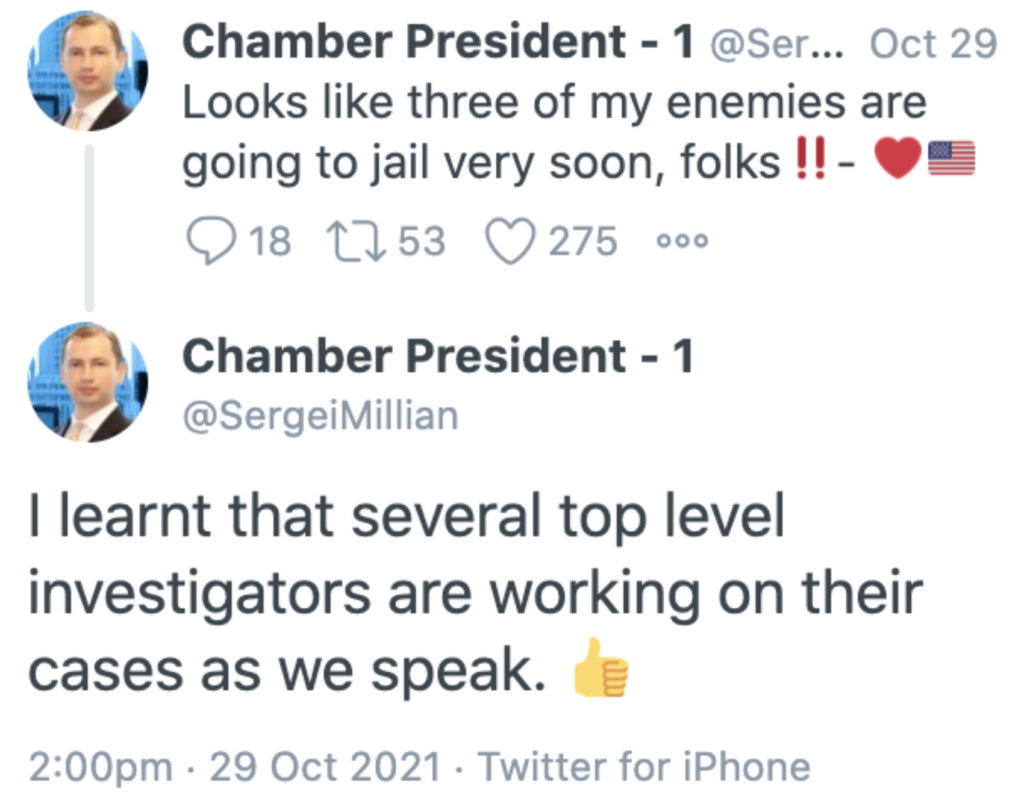Charles McGonigal and the Unclassified Oligarch Info
There’s a mildly interesting discovery dispute in the SDNY case of Charles McGonigal, the former FBI Special Agent in Charge indicted last month for sanctions violations connected to Oleg Deripaska.
His co-defendant, former Russian diplomat and approved translator Sergey Shestakov, wants to amend the protective order governing discovery in this case. As I said, this is only mildly of interest. Such challenges are not unusual, and his attorney, former Andrew Cuomo attorney, Rita Glavin, has agreed to be bound by the existing protective order while the dispute is settled, so the dispute is not holding things up (anymore).
The dispute pertains to two issues about which Glavin wants reciprocity with the government. One is whether witnesses must be bound by the discovery order.
The paragraph states: “The defense shall provide a copy of this Order to prospective witnesses and persons retained by counsel to whom the defense has disclosed Disclosure Material. All such persons shall be subject to the terms of this Order. Defense counsel shall maintain a record of what information has been disclosed to which such persons.”
[snip]
Shestakov’s counsel has claimed that the integrity of the proceedings requires that the Government, like the defense, maintain records about the persons to whom discovery materials are provided, and provide copies of the protective order to all such persons. But the Government is aware of no legal authority—nor any good cause under Rule 16(d)—supporting that request. And because the Government has long possessed much of this information, and appropriately used it for a variety of lawful purposes, such a log would be impractical at this stage.
The government’s point — that it has already interviewed so many people a log of those interviews would be meaningless (as well as its earlier point that the government is subject to grand jury secrecy rules but the witnesses before it are not) — is a perfectly reasonable point. Just as one example, McGonigal’s former mistress, Allison Guerriero, has already discussed issues that would be covered by the protective order with the press; SDNY has no way to oblige her to keep those details secret.
SDNY doesn’t say it, but it also likely wants to avoid keeping a list of all the witnesses it spoke with that might otherwise be discoverable by Shestakov; usually the government only has to provide details about witnesses who will testify.
The other dispute pertains to how discovery material must be treated — language that is, on its face, meant to prevent defendants from tweeting about confidential discovery information.
That sentence provides: “The defense shall not post any Disclosure Material on any Internet site or network site, including any social media site such as Facebook or Twitter, to which persons other than the parties hereto have access, and shall not disclose any Disclosure Material to the media or the public other than when such material becomes part of the public record in connection with court filings and court proceedings or as otherwise set forth herein.”
The government’s response is not as direct to this point. To Shestakov’s complaint that the government might leak (a complaint Glavin made repeatedly during the Cuomo case), the government responded only that he doesn’t have authority to complain in public.
More to the point, to the extent Shestakov has explained his objections to the challenged terms in the proposed order, those objections are not valid. In objecting to paragraph 3, for instance, counsel has told us that she will not agree to unilateral restrictions because she believes there is a risk that the Government will leak discovery material publicly. Courts have squarely rejected that argument. A defendant has no right to use discovery materials to influence public opinion about, or media coverage of, his case; as a result, the desire to publicly respond to perceived wrongs by the Government is no basis to oppose or modify a protective order. See, e.g., Smith, 985 F. Supp. 2d at 540; United States v. Lindh, 198 F. Supp. 2d 739, 743 (E.D. Va. 2002). If Shestakov takes issue with public statements made by the Government, the remedy is supplied by Local Criminal Rule 23.1—which binds the Government and the defense alike—and there is no need to modify the proposed protective order.
Still, SDNY’s response that the Local Rules on extrajudicial statements would cover this does address why reciprocity here is sort of meaningless: SDNY is not going to comment outside of court proceedings unless they make a press statement at one of the milestones of a case, like the indictment, trial verdict, or sentencing. It violates not just local rules, but also DOJ rules.
That said, SDNY (or DOJ generally) might have cause to issue press releases on topics covered by the discovery in the case in other matters, such as the milestone of someone else charged in matters pertaining to Oleg Deripaska, or even new charges pertaining to him. That may be one unspoken reason why SDNY is balking at Shestakov’s complaint, though the main one is the likely the way in which the language might prohibit information sharing within the US government.
The government provides three reasons for the protective order in this case: two are to protect the identities of witnesses and the privacy interests of those whose materials are included in the discovery, which are, again, quite routine.
SDNY also cites the need to protect unclassified information about sanctions on oligarchs, Russia’s influence efforts, and documents relating to efforts to surveil them.
First, the materials include, among other things, information pertaining to the imposition of sanctions on Russian oligarchs, information from various sources about potential Russian influence in the United States, and documents relating to law enforcement’s surveillance efforts. None of the materials that will be subject to this protective order are classified—the Government has determined that they can appropriately be produced to the defendants in order to comply with the Government’s discovery obligations—but there would still be law enforcement consequences to their public disclosure.
This is the kind of stuff that SDNY — or other parts of the government — might have cause to include in other press releases, unrelated to this case.
It’s all unclassified, SDNY says.
It’s not surprising that SDNY would build a FARA and sanctions case around unclassified information. On its face, the indictment relies on emails between Shestakov and McGonigal, Evgeny Fokin, the NYPD, and the law firm involved in trying to reverse sanctions, Kobre & Kim, records pertaining to the payments alleged to have been laundered from a bank in Cyprus through a New Jersey company, as well as records pertaining to subcontractors McGonigal employed (in a repeat of Christopher Steele) to investigate a Deripaska rival.
But the indictment is tailored to avoid other, more interesting and potentially classified discovery. The indictment doesn’t charge Fokin, for example, which would implicate any communications he had directly with Deripaska and others.
FARA and sanctions violations provide crimes that are readily chargeable when other crimes — which may or may not be implicated here — would impose onerous discovery requirements on the government. The fact that SDNY maintains all the discovery in this case is unclassified is important background to questions about what more the government knows about McGonigal’s actions: by design, they’re not going to tell as part of this prosecution.
All that’s important background for the other reason I’m intrigued by an entirely unexceptional protective order dispute. As SDNY’s letter describes, between January 24 and February 6, SDNY and McGonigal’s legal team, which includes former Bill Barr aide Seth DuCharme, resolved their own “modifications” to the protective order.
The defendants were each arrested on January 21, 2023, and were presented before Magistrate Judge Sarah L. Cave on January 23, 2023. The next day, the Government proposed a standard protective order, based on those routinely used in this District, to counsel for both defendants. Over the ensuing days, the Government repeatedly discussed the proposed protective order with McGonigal’s counsel, and agreed to make certain modifications based on those discussions. The Government and McGonigal’s counsel reached agreement on a protective order with the terms contained in Exhibit A, and on February 6, 2023, McGonigal’s counsel returned a signed copy of the order.
Two days after the government and McGonigal’s team resolved their own protective order issues (which also happens to be two days after Shestakov’s legal team filed their notice of appearance, so before substantive discussions would have begun between SDNY and Glavin), SDNY triggered the CIPA process. Among other things, the CIPA process will give SDNY a chance to argue that other classified discovery can be withheld from the defendants if it is not relevant and helpful to their defense.
Some such classified material McGonigal would know about personally. As the indictment itself notes, while still at the FBI, McGonigal had access to information on investigations of Russian oligarchs.
As SAC, McGONIGAL served as the Special Agent in Charge (“SAC”) of the Counterintelligence Division of the FBI’s New York Field Office. As SAC, McGONIGAL supervised and participated in investigations of Russian oligarchs, including Deripaska. Among other things, in 2018, McGONIGAL, while acting as SAC, received and reviewed a then-classified list of Russian oligarchs with close ties to the Kremlin who would be considered for sanctions to be imposed as a result of Russia’s 2014 conflict with Ukraine.
This list is no longer classified. But other materials McGonigal had access to while still at FBI undoubtedly are, including materials pertaining to the investigation of Deripaska’s role in the 2016 election interference operation.
And it’s not just these issues that McGonigal might know exist and might want to demand. According to Mattathias Schwartz, the investigation into McGonigal didn’t stem from the tip that his disgruntled mistress, Guerriero, gave to the head of NY’s FBI in 2019. Starting in 2018, the Brits were aware that McGonigal had suspect meetings with an unidentified Russian in London.
In 2018, Charles McGonigal, the FBI’s former New York spy chief, traveled to London where he met with a Russian contact who was under surveillance by British authorities, two US intelligence sources told Insider.
The British were alarmed enough by the meeting to alert the FBI’s legal attaché, who was stationed at the US Embassy. The FBI then used the surreptitious meeting as part of their basis to open an investigation into McGonigal, one of the two sources said.
Whenever the Brits picked this up (and subsequent meetings that Schwartz notes were referenced in the indictment), they would have happened before or during the time that DuCharme played a key role at DOJ, first as Barr’s counsel and then as PADAG. As I keep noting, DuCharme was centrally involved in Barr’s extensive efforts to prevent Rudy Giuliani — a close friend of McGonigal’s ex-mistress — from being prosecuted for his own dalliances with Russian agents. It is inconceivable that a senior FBI agent was under suspicion for suspect meetings with Deripaska or his associates and the matter wouldn’t arise to Barr and Jeffrey Rosen’s level. And DuCharme was personally involved in exceptional interference in investigations of Russia agents.
Even just based on his own knowledge of sensitive information pertaining to Russian investigations, McGonigal had the means to make this prosecution difficult, by demanding classified information he accessed while still at FBI, perhaps to argue that he had reason to believe that Deripaska was really just a nice guy who didn’t deserved to be sanctioned.
But DuCharme’s knowledge of such information would surely be even fresher than McGonigal’s. Indeed, given the reported tip from the Brits in 2018, DuCharme is likely to have firsthand knowledge pertaining to issues relating to McGonigal that might not otherwise be included among discovery (for example, of discussions among Russians about McGonigal that McGonigal himself would not be privy to). DuCharme likely knows what DOJ knew about McGonigal’s ties to Deripaska at least through the time he moved back to EDNY in July 2020, and at EDNY DuCharme would have presided over other sensitive Russian investigations, including the one into Andrii Derkach.
DOJ has not, at least not yet, triggered CIPA in the DC case. But it likely doesn’t have as much sensitive information about — and as much sensitivity surrounding — information on the Albanians involved in that case.
Given their shared knowledge of matters relating to Deripaska, McGonigal and DuCharme may make the prosecution plenty difficult as it is in SDNY.
Earlier posts
[From Rayne] The Other Albanian Stuff
No, Charles McGonigal Likely Isn’t Responsible for that Part of the Russian Investigation You Hate
Former FBI SAC Charles McGonigal Indicted for Crimes Spanning from 2017 to 2021

